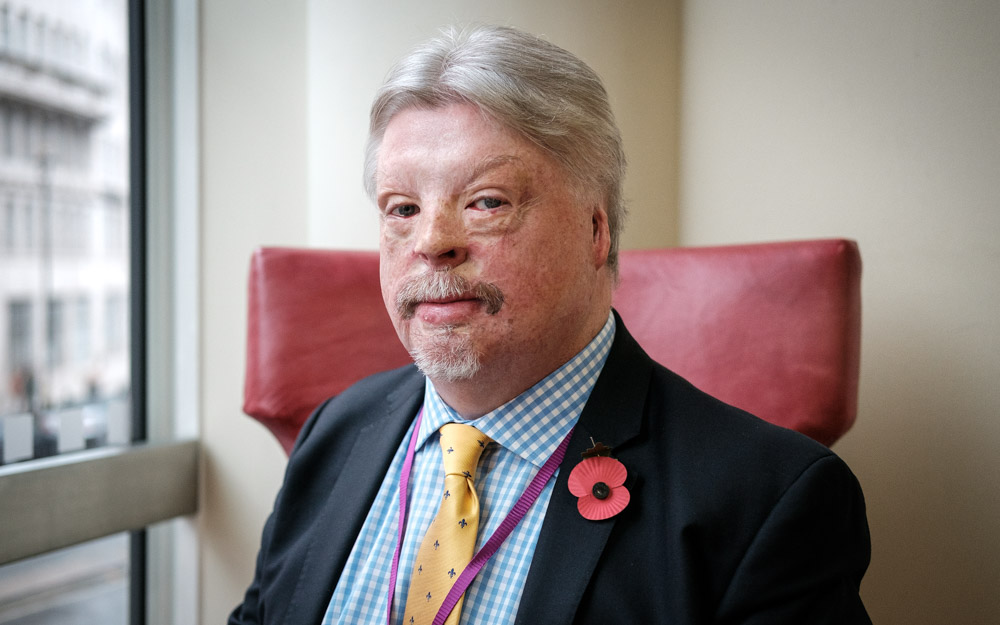Simon Weston is one of Britain’s most prominent and outspoken war veterans. His life changed forever on 8 June 1982 during the Falklands War when the British landing ship RFA Sir Galahad was bombed by Argentine Skyhawk fighters in what became known as the Bluff Cove Air Attacks.
Weston, who was then serving as a guardsman in the Welsh Guards, was onboard at the time of the attacks. He had joined the British Army aged 16 and had already served with the 1st Battalion, Welsh Guards in Berlin, Northern Ireland and Kenya. In the aftermath of the attack on RFA Sir Galahad he was the most severely injured casualty to survive the incident and subsequently the entire war with 46 percent burns. Weston spent the best part of five years in hospital and as of 2017 has undertaken 96 major surgical procedures.
Weston’s long and courageous recovery became well known throughout Britain and despite his injuries he threw himself into charity work. He is arguably the most famous veteran from the Falklands War and makes regular media appearances alongside public speaking and writing books. For his charity work Weston was appointed an OBE in 1992 and CBE in 2016 amongst other numerous honours. 35 years on from the conflict and now associated with, and the patron of, several charities Weston spoke to History of War about the legacy of 1982, the current state of care for wounded soldiers and befriending the Argentinean pilot who bombed RFA Sir Galahad.
As a trained and experienced soldier what were your opinions on war before and after the Falklands conflict?
Before the war it was what we were paid to do. Like a lot of soldiers you don’t think you’re ever going to go until there’s a war on and like a lot of people we were all amazed at how quick it all happened. But if you ask people about WWII they were amazed at how quick that Britain had committed to going to war after the invasion of Poland. These things happen very quickly and we had nothing else going on so we had a pre-focus on stuff. That’s the way we looked at it, its what we were paid to do. We were paid to do our job and not for our opinion about the rights and wrongs of it. Afterwards, that’s totally different when you can make your own opinions but at the time you do your job. It’s not a democracy when you join the military: its turning into one but it wasn’t when we were there.
In the 1980s what was the level of care for your physical injuries compared to today?
That’s a bigger question than you actually think. Back then from the battlefield side of it, everything was a bit “Heath Robinson.” We were in an old meat freezer packing centre and they were using the rails and racks that they had for hanging and storing meat. It had fallen into disrepair they were using the rusty racks as operating tables.
With regard to the treatment it’s important to understand that everything moves on. Nothing stays the same and for somebody to benefit today somebody had to suffer yesterday in medicine. Wound dressings are far more superior and stretchers are lighter. The training is superior as far as field medicine is concerned for each private soldier. Equipment is better and more people are living today in conflict because of body armour but then that means you’ve got more casualties with limbs missing.
It was totally different in our day. Kevlar is more prevalent now. It restricts the amount of injury but also restricts death. In the Falklands we lost 255 dead. If we had had body armour you might have been able to slash that number by half.
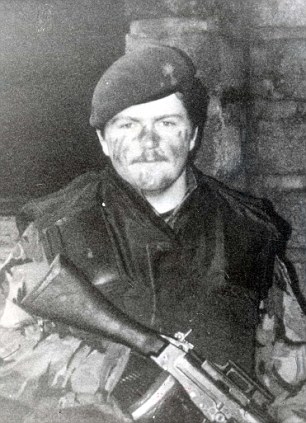
How important is it to remember the suffering that veterans of the conflict endure even today such as Post-traumatic stress disorder (PTSD)? Is it flagged up enough and does more need to be done?
The thing is its always been known and ‘shell shock’ has been exchanged for PTSD. Shell shock was known in WWI and it was treated: the French in particular took it very seriously. Mental health through conflict has always been an issue. Men and women suffer horribly from conflict-related mental health problems and your psychiatric health does take a hell of a battering. With that being the case you’ve got to look at it sensibly.
We’ve moved on to more enlightened times but I don’t know whether ‘post-traumatic stress’ in its terminology is fair because it doesn’t actually give it the gravitas of the damage that it does to individuals lives and families. The problem we’ve got is that a lot of people who have gone to conflict use PTSD to get themselves out the trouble they often find themselves in. It dilutes the gravity of the problem when you have some scumbag who has committed an armed robbery or burglary. There’s usually nothing wrong with him but he’s said, “Quick, I’ll grab a lawyer who will tell everyone that I’ve got PTSD.” He uses it as a distraction from the problems he’s created for himself and there are a lot of those. It becomes hard to separate the “Walter Mittys” from the real casualties and sufferers.
I suffered from PTSD from quite some time but I know of other guys who suffered from it more who had no physical injury so you cant equate the two things. I’m not a clinician, psychologist or scientist but I do know what its like to live as a patient and as a casualty of those things and there are far too many people who use PTSD who use it as a crutch to get from under trouble. There are far too many people who use it as a badge of identity as well to say that they served. They may have seen and done a lot but PTSD has bypassed them and will anybody believe that they were in conflict if they didn’t have it? Will anybody believe that I did the things I did? Then you see these other incredible guys who get the gallantry awards. They don’t need to tell anybody because they wear it on their chest if there’s no physical injury. But for a lot of guys if there is no physical injury can it be proved they were ever there?
Today, has care and awareness improved for soldiers with invisible wounds such as PTSD? If not, what areas need improvement?
It has improved dramatically because in our day PTSD was totally ignored. It didn’t exist and the Duke of Edinburgh said, “There’s no such thing as PTSD, just a lack of moral fibre.” That was the attitude back then and they refused to acknowledge it. Even though the Falklands guys were the first to present it, look for help and complain about it, a lawsuit was brought out so that they didn’t have to spend money on us. The Falklands guys really got the crappy end of the stick.
Things have improved but there’s still a long way to go. For the other ranks like senior officers they get the privilege of somewhere else to go but ordinary soldiers rely on charity. Is that correct? It’s the only thing we’ve got so we have to deal with what we’ve got. Is there enough money in the pot? No there isn’t, so will we be able to change things that dramatically? Probably not, but it doesn’t change the fact that it still needs doing. We still need it done, we still need to have people looked after.
You’re often to as a ‘war hero’. How do you feel about that when it’s said about you and the term in general?
If people want to say those things that’s entirely up to them, I can’t stop people being kind and generous with their terms. It’s not what I see and if you talk to anybody else that gets that label, they don’t see themselves like that either. I tried to help people inside the fire but when I realised I was burning and falling apart myself then I realised that I had to get the heck out of there.
Heroes are made by other people, it’s what other people say about you that creates the story. You do what you do at the time, you’re not thinking about what’s going to be said or written about you in 20 years time. When I was on top of the ship all I wanted to do was survive. When I was surviving in hospital and trying to keep my mind together all I wanted to do was be the Simon Weston that I was before and I wanted to go back to the army and play rugby. Nothing that other people say is really what you think of yourself.
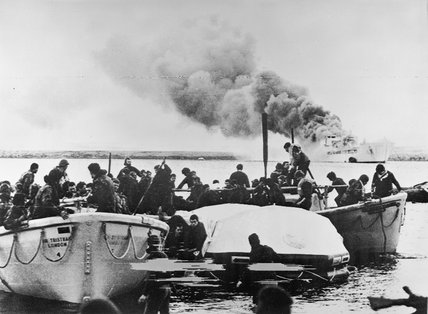
How did you come to befriend the Argentinean pilot that bombed RFA Sir Galahad (First Lieutenant Carlos Cachon) and what does the reconciliation mean to you?
I was offered the opportunity to meet Carlos, which I was very dubious about. It was all arranged and at the last minute I never met him. I almost didn’t do it because I was running through a whole gamut of emotions. However, we met and he got rid of my nightmares.
For ten years my nightmares had been of a screaming black jet with this dark, hooded figure with demonic, flaming red eyes. I would wake up every night and my bed would be soaking and I would be on fire. I still wake up at two or three o’clock in the morning now but the difference is I’m not on fire anymore.
Meeting Carlos helped me with all that. I didn’t do it for anyone else and I make no apologies for it. I do apologise if it upsets some of my colleagues and those who lost people. It wasn’t my intention but sometimes you have to be selfish and do things that help you through life. The reasonable people in the world will understand why I did it.
There was also no ‘reconciliation’. We’d been to war, he’d worn his country’s uniform and I’d worn mine. We just met and got on, it’s nothing bigger than that. We’ve stayed in contact and stayed friends and the more we meet the better our friendship goes. He wasn’t the best man at my wedding, he wasn’t the man giving blood to save my life, he was the man who blew us up. He killed 48 of my comrades and friends and he nearly killed me but that is all.
When he was told he was going to meet someone with mental problems because of what happened he said yes in a heartbeat so he showed great moral courage. I will always thank him for that because it was war: it wasn’t personal. We have to respect that side of it: humanity must come into conflict at some point.
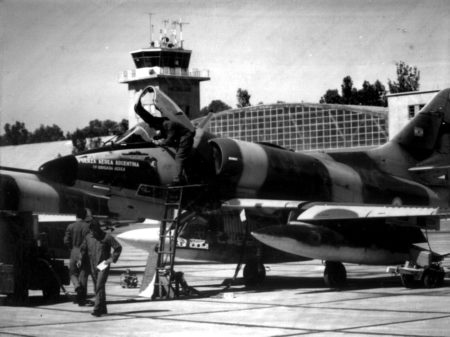
What are your thoughts on the recent efforts to identify Argentinean war dead?
If they can identify them, why not? It gives families somewhere to go and lay their mementos and remembrance keepsakes so that can feel good. I think everyone should have a focus to go and grieve and they were somebody’s son, dad, uncle, brother as well.
They weren’t evil people, they were just Argentinean soldiers. They’re exactly the same as us: if I needed a kidney from an Argentinean with a genetic match then I’d accept one and wouldn’t give a monkeys. They were human beings the same as us, its just that when they’re your enemy at that time you have to show as little mercy as you have to show. You show as much mercy as you can but its war and you have to make hellish judgements at a time of great stress.
The Falklands directly affected your life and cost the lives of many others and it is still regarded as a controversial conflict. Do you think perceptions of it have changed over the past 35 years?
Tell me a conflict that isn’t controversial? The realities we need to understand 35 years later is that the controversy that surrounded the Falklands were largely politically created. As far as soldiers are concerned we don’t have a choice, we’re ordered to go and we do. I was paid to do a job, I wasn’t paid for my opinion. I joined to be a soldier and being a soldier meant that we had to take risks
Whatever the controversy that surrounded the Falklands that was nothing to do with us so the political arguments and ramifications are for other people to deal with. All we needed was all the equipment and the kit to do the job. Margaret Thatcher did give us just about everything she could to try and be able to do the job and we got through it by luck and the skill of the men on the ground.
Does it feel strange for the Falklands War to be considered as history 35 years later?
I’m glad to be answering this question 35 years on, there are lot of boys who would love to be answering it. 48 men on that ship would love to get the aches and pains that I get every morning. The realities are that if you’re still around to tell the tale 35 years on it ain’t been that bad.
To be classed as the worst injured to come back from the conflict, it feels like my life and somebody else’s life all in the same token. It happened a lifetime ago, I was younger than I’ve been alive since the bombing. I was only 20 at the time when I was blown up so you get all those perspectives and you think, “Blinkin’ heck!” Its all contradictions now, I hate being older but I’m so glad that I am.
The bombing didn’t end my life, it just changed it and I have never wanted to be defined by what happened to me but rather what I did about it. I’ve been incredibly fortunate, it could have quite easily been someone else to be the worst injured and for me not to be here at all.
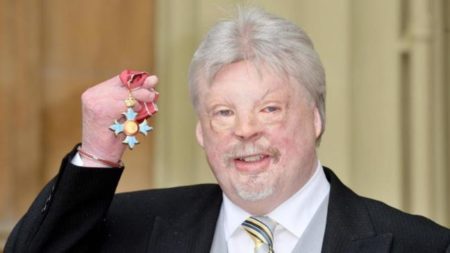
Find out more about Simon Weston’s charity work on his website. For more first hand accounts from modern conflicts, subscribe to History of War for as little as £26.
